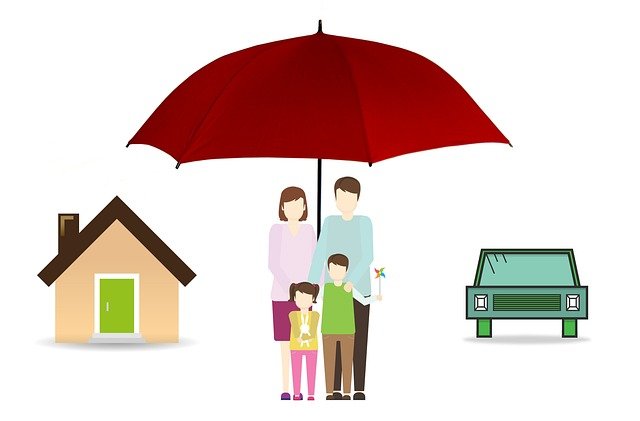Housing Assistance Programs for Single Mothers in 2025: Understanding Grants, Eligibility, and Support Options
In 2025, housing assistance programs continue to provide valuable support for single mothers seeking stability and affordable living conditions. With rising rental prices and stricter lending requirements, many families are exploring government and nonprofit grants designed to help with housing costs, down payments, or rent subsidies. This guide explains how these programs work, what eligibility factors apply, and where to find reliable assistance for single-parent households across different regions.

Navigating housing costs as a single mother presents significant financial challenges, particularly when balancing childcare responsibilities with limited income opportunities. Housing assistance programs serve as crucial safety nets, providing various forms of support to help families secure and maintain stable living conditions. Understanding the available options, eligibility requirements, and application processes can make the difference between housing instability and finding a secure home for your family.
The Role of Housing Assistance for Single Mothers
Housing assistance programs specifically recognize the unique circumstances facing single-parent households, where one income must cover all family expenses. These programs address multiple housing-related needs, from immediate rental assistance to long-term homeownership support. The assistance helps bridge the gap between available income and actual housing costs, which often consume 30% or more of a family’s budget.
Federal programs like Housing Choice Vouchers (Section 8) provide ongoing rental assistance, while emergency programs offer short-term help during crisis situations. State and local initiatives often complement federal programs, creating comprehensive support networks that address various housing challenges single mothers may encounter.
Common Types of Housing Grants and Programs
Several distinct program categories serve different housing needs. Rental assistance programs include Housing Choice Vouchers, which allow families to choose their housing while the program pays a portion of rent directly to landlords. Public housing provides government-owned units at reduced costs, while project-based assistance offers subsidized units in specific developments.
Emergency assistance programs help with immediate needs like preventing eviction, covering security deposits, or providing temporary shelter. These programs often work through local social services agencies and nonprofit organizations. Homeownership programs, including down payment assistance and first-time buyer grants, help transition families from renting to owning their homes.
Transitional housing programs serve families experiencing homelessness or domestic violence, providing temporary housing while families work toward permanent solutions. These programs often include supportive services like job training, childcare assistance, and financial counseling.
Eligibility Requirements and Application Process
Eligibility criteria vary by program but typically focus on income limits, family size, and citizenship status. Most programs use Area Median Income (AMI) calculations, with many serving families earning 50% or less of their area’s median income. Documentation requirements usually include proof of income, identification, Social Security cards for all family members, and verification of any assets.
The application process begins with contacting local housing authorities or social services agencies. Many areas maintain centralized waiting lists, though some programs use lottery systems due to high demand. Applications require detailed financial information, employment history, and references. Processing times vary significantly, with some emergency programs providing assistance within days while others may have waiting periods of months or years.
Priority systems often favor families with extremely low incomes, those experiencing homelessness, or families with special circumstances like domestic violence situations. Veterans’ families and elderly household members may also receive priority consideration in certain programs.
| Program Type | Provider | Average Monthly Assistance | Key Features |
|---|---|---|---|
| Housing Choice Voucher | Local Housing Authority | $800-$1,200 | Portable, choice of housing |
| Emergency Rental Assistance | State/Local Agencies | $500-$2,000 | Quick processing, temporary help |
| Public Housing | Housing Authority | $300-$900 | Fixed location, long-term |
| Down Payment Assistance | State Housing Finance | $5,000-$15,000 | One-time homeownership help |
| Transitional Housing | Nonprofit Organizations | $400-$800 | Includes supportive services |
Prices, rates, or cost estimates mentioned in this article are based on the latest available information but may change over time. Independent research is advised before making financial decisions.
Successful navigation of housing assistance programs requires patience and persistence. Many programs have extensive waiting lists, making early application crucial. Maintaining accurate documentation and staying in contact with program administrators helps ensure continued eligibility and timely processing.
Local nonprofit organizations often provide application assistance and can help identify additional resources. Community action agencies, faith-based organizations, and legal aid societies frequently offer support services that complement formal housing programs. These partnerships create comprehensive support systems that address not just housing needs but also related challenges like transportation, childcare, and employment.
Housing assistance programs provide essential support for single mothers working to create stable homes for their families. While the application process may seem complex, these programs offer genuine pathways to housing security. Understanding available options, meeting eligibility requirements, and navigating application procedures successfully can transform housing challenges into opportunities for long-term stability and growth.




